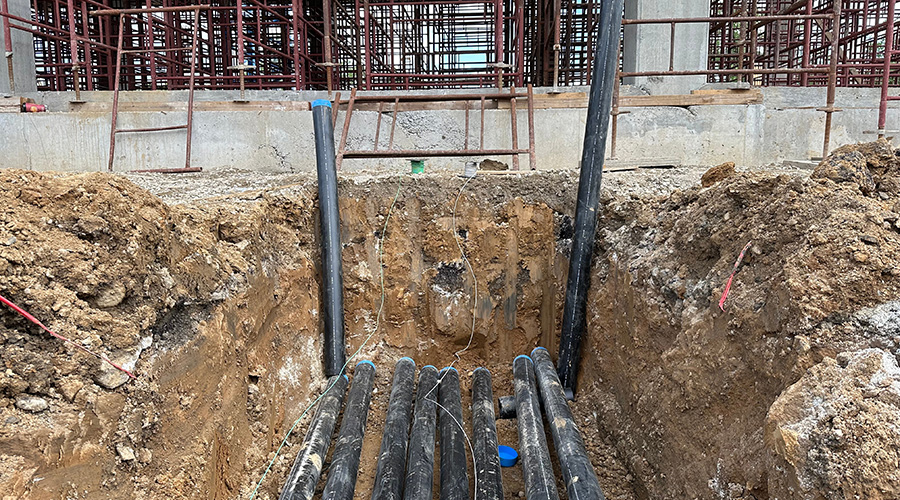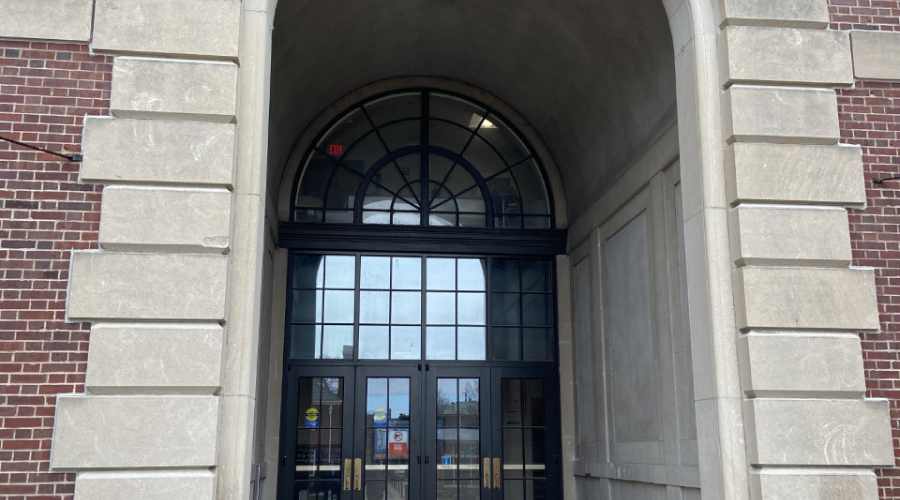
15 Takeaways from NFMT Baltimore
Quiet hiring, poor IAQ, exiting workforce, school safety and autonomous mowers were among the latest trends discussed at the show. April 10, 2023
NFMT returned to the Baltimore convention center March 21-23. During the show, facility managers could choose from more than 100 education sessions, visit booths from 300-plus suppliers and network with peers at myriad events. There were plenty of opportunities to learn about the latest trends in technology, safety, maintenance operations, energy and much more. Below are just 15 takeaways from the information-packed show.
- Quiet quitting and quiet firing were 2022 trends. Now in 2023, it’s quiet hiring. This means hiring short-term contractors to fill gaps, as well as expanding duties of current employees beyond their current responsibilities.
- Higher education is facing an urgent deferred maintenance situation – an $110 billion price tag according to the Association of Physical Plant Administrators (APPA) – forcing universities and colleges to reassess their campus size and building makeup. In many instances the wise solution financially is to downsize space which isn’t always an easy sell to campus leaders.
- The skills gap is a reality among managers looking to hire new employees to fill maintenance and technician positions. The crunch is especially critical considering 50 percent of facility managers are expecting to have positions to fill this year, and their top concern according to polls is staff retention over budgets/funding and rising costs/inflation.
- The implications of poor indoor air quality (IAQ) include 2 to 5 times more pollutants in the facility and 39 percent higher HVAC costs. On the other hand, proper IAQ contributes to a $6,500 increase in productivity per employee per year.
- An active shooter incident is over in four minutes. The average response time for police is between four and 21 minutes. Police are the first official responders. In reality, facility managers and building occupants are the first responders.

- Roughly 30 percent of facilities professionals plan on retiring in the next five years. Every organization has someone that is seen as the keeper of all knowledge. What do we do when that person retires or leaves for a different job? That information goes along with them. It is important to start moving toward digital operations so that knowledge can be transferred from person-to-person.
- Autonomous mowers have already arrived in the high-end residential market, and they are poised to make inroads into institutional and commercial landscapes. Their use can result in healthier landscapes that require less fertilizer and water, and they can help managers address ongoing labor shortages.
- Women are still under-represented in the facilities management industry and continue to face adversity. As a woman, if men like what you are saying they are your best friend, but if they don’t then you are a bitch. It’s something that women have been forced to navigate in the workplace. Some women don’t want to be treated like or man or “one of the guys.” They want to be treated like themselves because that’s who they are. Terms of endearment like “sweetheart”, “dear”, or “girlfriend” aren’t always endearing...just call women by their name.
- It’s still too early to truly know if in-person, remote or a hybrid mix works best. As hybrid work continues to evolve post-pandemic, companies are continuing to implement more deliberate and effective work policies. Managers must clearly state why employees are in the office, and they must include more reasons than just because it’s the way it’s always been done. However, organizations should consider basing needs off their employees’ productivity. If a person is more productive in-person, have them come to work. If they are more productive off-site, allow them to be remote.

- When responding to a complaint against a facility under the Americans with Disabilities Act (ADA), facility managers should not tell investigators that the organization can't afford to make changes to comply with ADA. Says Joan Stein, president of Stein Consulting, “If you do that, then you have to open your books for them, and it's not a pleasant experience.”
- Students need to feel safe in order to learn. However, safety in schools means more than physical security — it includes emotional and social safety, too. For example, can the windows open to allow in fresh air or is water safe to drink? Facility managers must look beyond metal detectors, cameras and door locks when protecting students.
- Managers should let conditions dictate the recommendations when developing a roof strategy. To best maintain their roofs, managers should separate their roofs into grids, bring in a third-party expert to perform a visual inspection, and incorporate infrared scans into the inspection process to achieve the best results. Roof coatings can help prolong the life of roofs and keep materials out of landfills, but if the application calls for coating more than one-quarter of the roof surface, managers should seriously consider replacing the roof.
- Strategic planning is a critical aspect of being a successful facility manager. Not only do managers have to ensure that their departments are running trouble-free in real-time, but the best managers also need the ability to gaze into a crystal ball and see how their roles are changing and predict what the future will hold.

- With supply chain issues pushing back delivery of uninterruptible power supply (UPS) equipment for data centers, some facilities are considering purchasing reconditioned UPS for permanent or short-term solutions. If going that route, managers should only consider equipment that’s 7 years older or less and include a factory warranty in case something breaks down.
- Being curious and always wanting to learn can help facility managers move up in their career and make connections with people from different sectors. “The day we stop trying to learn is the day we start falling behind,” says Charles Thomas, Facilities Operations Consultant with LACE Management.
Next
Read next on FacilitiesNet















